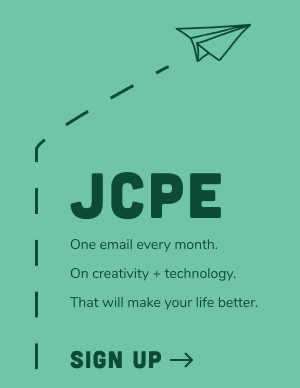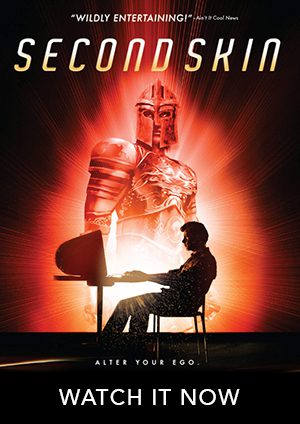Every other conversation I have these days runs along the thread of societal advancement, the future, and our evolution as a species. Of course I land on different sides of the coin in almost every discussion, but all the same they are quite lively. That said Chris and I have talked a lot about transparency in the internet age, and how it has changed the way we do business. Most web companies value this as an asset, but older companies seem to have a harder time with this new set of social standards. What follows below is an interview based on that conversation we had.
– THE INTERVIEW –
CHRIS BAILY ON MARKETING STRATEGY:
TODAY AND IN THE FUTURE
JUAN CARLOS – So we’ve talked about this before, but can you go back to the beginning?
CHRIS – Well I was doing some thinking yesterday, and this is sort of a compilation of stuff we’ve been talking about over the last year. I thought I might try to distill it a little bit.
I was thinking about advertising and marketing and how one can be intellectually and financially honest with people while at the same time asking them to spend money on our products. The general problem I have with advertising is that many companies are acting fundamentally hypocritically when they promote a product. They are trying to convince people that they “need” a particular product or service, while their real motivation is profit. There is too little attention or care for the long term benefit of the customer.
JUAN CARLOS – It seems somewhat inevitable since most companies outsource their marketing programs to other companies who specialize in it. I would be hard pressed to find an advertising company that would reject a big contract for ethical reasons. I suppose it probably happens now and then, but I digress… How do companies care more or less about their customers?
CHRIS – In an efficient market, customers will be adequately informed and can be trusted to make their own decisions, so the company should not impinge on their freedom of choice. In this scenario, McDonalds is absolved from guilt over the fat content of their food because the consumer has made the choice to eat it. In fact, I think that executives at McDonalds may even consider it a moral obligation to its customers to provide them with products they want, regardless of long term consequences. On some level I agree with this idea – I don’t like other people making decisions about what I can and can’t buy. But I want those decisions to be well informed, and I think there is a responsibility for the company to honestly inform me.
JUAN CARLOS: Sure they’re supposed to inform you, but how realistic do they have to be? How visceral should our learning be about the process. In McDonald’s case it seems like you’d be calling for them to show us all of their business practices behind the scenes. It seems unlikely that a giant would every open their facilities to the public in that way. In your case there is something that hits much closer to home – you’re a smoker though. You obviously know the consequences, and those companies inform you of the risk on each pack. Do you blame them anyways?
CHRIS: I am a smoker, so it would be hypocritical for me to blame the tobacco companies for my smoking habit. I am an informed consumer who began smoking when I was well aware of the health consequences. However, the current advertising climate seems designed to obscure and confuse that choice for the average consumer, and that is something I very much disagree with. I don’t blame the tobacco companies for making me smoke, but I still believe that as honest businessmen, they had a responsibility to address health concerns when they knew about them.
JUAN CARLOS: So how do you do it well?
CHRIS: You guys have done a great job of this with Second Skin –
JUAN CARLOS: [Thanks for stroking the ego.]
CHRIS: …Which is why I started thinking about this yesterday. Essentially, you took a subject – online role playing games – that fundamentally interested you and that you generally feel positive about. You are gamers, and you do not believe that video games are inherently bad for society. You then did a careful and even handed analysis of the effect these games have on hardcore players and an examination of the product and the lifestyle it generates. You have maintained that honesty throughout. Yes, you want to make money off this project, but that’s okay, because your motivation for this movie was not financial. Paying for movies is not about supporting greed, but about having the power to continue to bring good products to the marketplace.
JUAN CARLOS: I think a lot of filmmakers share those same ideals. It’s easier to use us as a standard as well because there is something glamorous about making movies. This allows for a loftiness in our ideals that say being a butcher probably wouldn’t. However you cut it though most people making movies right now aren’t making enough money to even go out on a Friday night. We all know about the broken traditional theatrical distribution system we have these days. Where do you think we’re going in that regard? Everything is pretty obviously going online, but at what a cost? Is everything just going to be free?
CHRIS: If we create an environment in which it costs exorbitant amounts of money to protect our content from Piracy and other exploitations, we will be handing more and more power over to the people who can afford to do so – to the detriment of creativity. Easy access to content is important, because it allows for a greater flow of ideas and ultimately, leads to better art. The introduction of radio in the 50s and 60s was viewed as a massive threat to the music industry because it took access control out of the hands of the record companies. Ultimately, it produced one of the most important periods in the history of music because it gave people from different walks of life access to music they may have never heard (The Beatles playing rockabilly and Elvis singing the Blues) . It also produced a thriving music industry that was eventually bolstered by that increase in quality and access. I still believe that the internet will eventually have that kind of effect, and the real trick will be figuring out how to capitalize on it. The movie industry is in a similar position – a huge drop in the cost of production and a massive influx of cheap content will initially destabilize things, but it could also heat up an engine that might lead to an explosion of visual content. I’ll stay general here, because I’m not sure that the conventional movie and TV formats are going to be the way this explosion happens. However, there is so much creativity being generated in the moving image format that it’s got to pop out somewhere…
JUAN CARLOS: Everything is free at this point. I can go online, and download anything. Cheap content devalues filmmakers and filmmaking. Will advertising dollars make the difference here? How do we breakdown the old way of doing things?
CHRIS: Right now, the old system is breaking down because entertainment companies have yet again overplayed their hand. When we shifted to CDs and DVDs in the 90’s, there was no corresponding drop in the price of content. We all know that a CD costs significantly less to produce, yet they were charging significantly more for them. Are they really surprised that people turned to alternative sources of content like mp3s? Can they really make the argument that the cost of producing bands increased so dramatically in a few years that they had to essentially double the price of music? Now they’re screwed, but they also managed to screw everyone else by creating a huge gulf between the consumer and the artist. I will still happily throw a dollar into the hat of a talented street musician, but I have a harder time spending a dollar on Itunes for an extremely talented band, because I have no sense that the majority of that dollar will go to the artist. Plus, I’m suspicious of artists who seem to be making cheap music for a quick buck and a shot at fame, fortune, and hot chicks. That sucks, but luckily, things like the Radiohead model are starting to address it. One of the problems with the consolidated entertainment industry was that people who wanted to buy a Chemical Brothers CD were also being forced to subsidize the Backstreet Boys and countless other pieces of crap. As a consumer, you want to be able to support products that you think are worthwile, and you want the option to pay more for those products, and less for the shitty stuff.
I think there has been a growing consensus among consumers that the only objective way to determine the quality of a product is to get information from an outside party. It has been established that you can’t trust a company’s own information. This is especially bad because it releases the companies from any obligation to truth. The attitude seems to be: “hey – if they think we’re lying anyway – we might as well lie our pants off all the way down the line”.
We have the opportunity to operate with a different attitude – to essentially say – here’s what we like, here’s what we think is important – so you should pay for it, not because we want money, but because you agree with us and you agree with the people who are making it.
I think that companies like a Google and to some extent Apple are already operating on this basis. I think they are making decisions about what they would want, as consumers, and then aggressively pursuing those products. This is the way capitalism should work, although the jury is still out on whether they can maintain that attitude as they gain power.
JUAN CARLOS: So where are we heading in this new future where companies cannot afford to do anything without consumer approval?
CHRIS: In an increasingly transparent world, it seems like this integrity will become more and more important. Developing a reputation for quality should always be a business goal, but in the entertainment world, many consumers have become convinced that companies are just appealing to the lowest common denominator (and rightfully so, in many cases). When we make something in the future we won’t be doing it just because we think it’s going to get us rich. We will be doing it because we believe in what we’re selling. If a company can get that across, they should be able to build a competitive advantage that makes people feel comfortable paying for things.
– END INTERVIEW –






